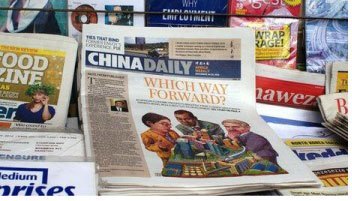
Zimbabwe on Friday joined other countries in marking World Press Freedom Day but there was little to cheer for local journalists. The day was set aside 20 years ago by the United Nations to raise awareness on the importance of press freedom.
Journalists and media-friendly organisations on May 3 each year reflect on the state of press freedom throughout the world, defend the media from attacks on its independence and pay tribute to journalists who have lost their lives in the line of duty.
In Zimbabwe, there is need to do more for the cause of press freedom which is in the doldrums. Little has changed for journalists who endured a torrid time between 2000 to 2005 when journalists were harassed, beaten up, arrested and newspapers closed down.
While a number of independent publications have been granted permission to hit the streets, the environment remains unfavourable to the growth and vibrancy of the independent press. Webster Shamu, the Information minister continues to threaten journalists.
The Broadcasting Authority of Zimbabwe is yet to license community radio stations and new independent television stations, preferring to permit only two commercial radio stations, Zi-FM stereo and Star FM.
Repressive laws such as the Access to Information and Protection of Privacy Act (Aippa) and the Public Order and Security Act (Posa) are still in existence.
Criminal defamation remains a weapon that is constantly used by enemies of a free press.
The state-owned ZBC still maintains its monopoly on the airwaves, shutting out divergent views.
- Chamisa under fire over US$120K donation
- Mavhunga puts DeMbare into Chibuku quarterfinals
- Pension funds bet on Cabora Bassa oilfields
- Councils defy govt fire tender directive
Keep Reading
The broadcaster continues to churn out hate speech, especially towards MDC formations, now that the country is moving towards the holding of elections.
While journalists have been clamouring for self-regulation, the new constitution, largely a product of negotiations between the main political parties, has maintained the statutory Zimbabwe Media Commission.
Clearly, the inclusive government, which has been in existence for four years, is not prioritising media reforms, yet a free media is the cornerstone of any democratic state.
We urge GNU principals to implement media reforms urgently in order to do away with undue restrictions on press freedom.











